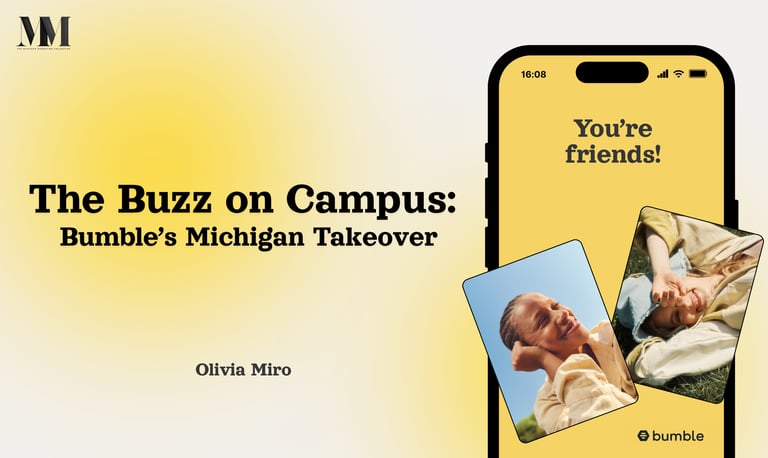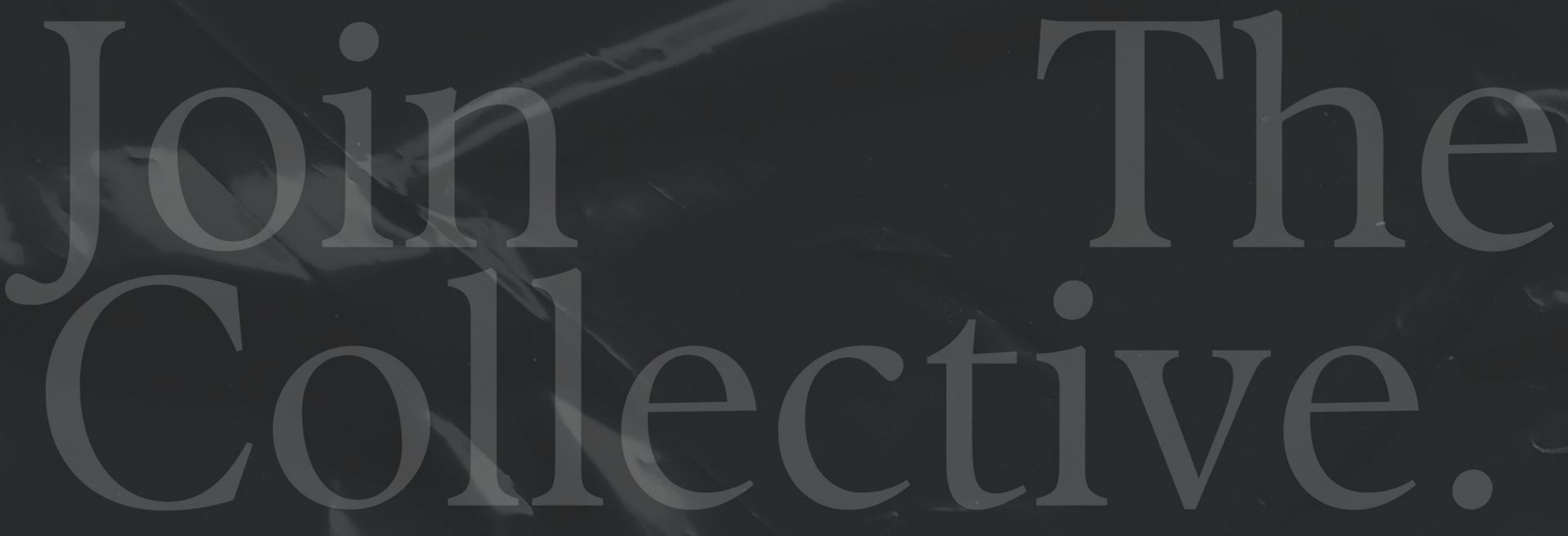The Buzz on Campus
Bumble BFF's Michigan Takeover
EDITION 1
Olivia Miro
10/30/20253 min read


Cover Design by Esther Kim
The Buzz on Campus:
Bumble BFF's University of Michigan Takeover
By Olivia Miro
In an industry defined by male-driven narratives, Whitney Wolfe Herd set out to change the story. After helping build Tinder, Wolfe Herd wanted to create something radically different, a platform built on respect, safety, and equality. That vision became Bumble, the app that puts women in control and reshapes how people connect, date, and build friendships.
Before founding Bumble in 2014, Wolfe Herd had already proved her marketing instincts. While at Tinder, she focused her efforts on college campuses, throwing pizza parties, handing out branded merchandise, and meeting her audience where they were. It was a strategy that fueled Tinder’s early success and later inspired Bumble’s signature grassroots approach: marketing that feels personal, empowering, and community-driven.
Her journey, however, wasn’t without conflict. Wolfe Herd’s departure from Tinder came after a highly publicized lawsuit against the company for sexual harassment, a pivotal moment that underscored her determination to build something better. As she told Time Magazine, the experience motivated her to “prove she could do it again, but better.” (1) That drive now defines Bumble’s identity as a female-founded, female-led company with 85% of its employees being women, where empowerment isn’t just a marketing message but a guiding principle. (2)
The spirit and mission behind Bumble recently came to life on the University of Michigan campus, where juniors Charlotte De Baubigny and Danielle Bellamy led a Bumble BFF activation as part of the brand’s college ambassador program. The initiative gives students the opportunity to bring Bumble’s message of connection to life through creative, on-campus events.
Charlotte first connected with Bumble during an internship at the company’s Austin headquarters, where she worked on influencer outreach and early ideas for college activations. “I got to see firsthand how they were trying to reenter the college space,” she said. “The goal wasn’t just to promote the app; it was to create genuine engagement and build community.”
When the new BFF ambassador program launched, Charlotte teamed up with Danielle to bring it to Ann Arbor. Their approach mirrored Bumble’s original playbook: authentic, inclusive, and experience-driven. From delivering branded cakes to sororities to planning a campus-wide bar tab event at Club Above, they built anticipation through word-of-mouth and social buzz. “We wanted it to feel inclusive,” Danielle explained. “Not just Greek life, anyone who wanted to show up.”
The event was a huge success, with students describing it as one of the most fun and welcoming nights of the semester. “People kept saying, ‘That was such a fun night with my friends,’” Charlotte recalled. “Knowing they associate that memory with Bumble means we did our job.”
For both ambassadors, the experience offered more than marketing practice; it showed them how connection and empathy drive real engagement. “Every person I worked with at Bumble was a woman,” Charlotte said. “It was empowering to be part of a team where collaboration and creativity were so valued.” Surrounded by women in leadership who encouraged her to share ideas and take initiative, she found that Bumble’s internal culture reflected the same inclusivity and confidence the brand promotes on campus.
Through this activation, Bumble proved that its core message extends far beyond dating. It’s about creating spaces where people feel seen and supported, whether that’s online, in business, or on a college campus. Universities like Michigan provide the ideal setting for that mission to thrive: communities filled with diverse voices, new ideas, and a shared drive to build something meaningful. By fostering empowerment and inclusion among students, Bumble’s presence on campus mirrors the very purpose of higher education—transforming learning into leadership, and connection into real-world change.
And perhaps most importantly, Wolfe Herd’s story reminds students that success rarely follows a straight path. Her willingness to rebuild after adversity, to believe in her ideas even when others didn’t, reflects the same resilience that fuels innovation on college campuses today. For young professionals navigating their own beginnings, Bumble’s journey serves as a reminder that turning challenges into purpose isn’t just the key to entrepreneurship—it’s the foundation for lasting impact.
(1) https://time.com/7314564/swiped-true-story-whitney-wolfe-herd-bumble/

